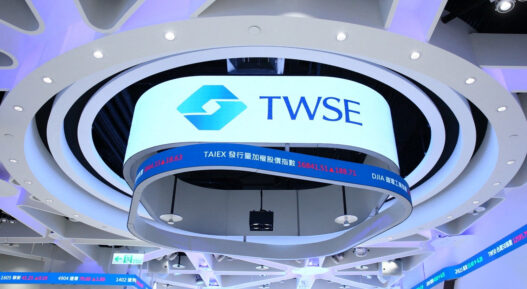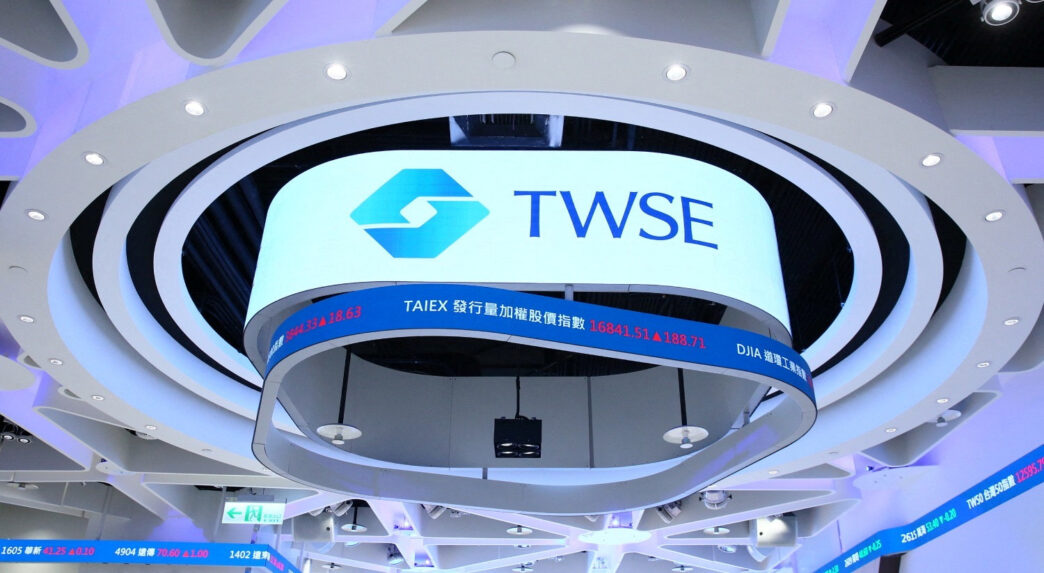The Unexpected Rise: Taiwan’s Market Defies Global Trends
Powered by MasterCFA.com
What Happened?
On Tuesday, October 22, 2024, Taiwan’s stock market closed on a positive note, with the Taiwan Weighted index gaining 0.24% to reach a new 3-month high. This upward movement was primarily driven by strong performances in the Glass, Transport, and Optoelectronic sectors. Notably, some companies experienced significant gains, with Arima Communications Corp leading the pack with a staggering 350.24% increase.
Why Does This Matter?
Impact on the Economy
This positive trend in Taiwan’s stock market is a significant indicator of the country’s economic resilience. As a major player in the global technology supply chain, Taiwan’s market performance can have ripple effects on the world economy, particularly in the tech sector.
Personal and Business Effects
For Taiwanese citizens and businesses, this market uptick could translate to increased consumer confidence and potentially more investment opportunities. Companies in the thriving sectors may see improved access to capital, enabling expansion and innovation.
Economic Theories in the Real World: Taiwan’s Market as a Case Study
Theoretical Concepts in Action
Economic Theories Showcased
- Market Efficiency Hypothesis: The rapid price adjustments seen in stocks like Arima Communications Corp demonstrate how quickly markets incorporate new information.
- Sector Rotation: The outperformance of specific sectors (Glass, Transport, Optoelectronic) illustrates the concept of sector rotation, where investors shift capital between different sectors based on economic cycles and market conditions.
- Behavioral Finance: The extreme price movements in some stocks (e.g., Arima Communications’ 350.24% gain) might indicate elements of investor psychology and herd behavior.
Real-World Application
The Taiwan stock market’s performance provides a real-time laboratory for these theories:
- Market Efficiency: The swift price changes reflect how quickly information is processed in modern markets. For instance, any news about Taiwan’s semiconductor industry can lead to immediate price adjustments in related stocks.
- Sector Rotation: Historical examples, such as the shift from tech to value stocks during the dot-com bubble burst, demonstrate how sector performance can rotate. In Taiwan’s case, the strong performance of transport and optoelectronic sectors might indicate a shift in economic focus or investor sentiment.
- Behavioral Finance: The extreme gain in Arima Communications’ stock price could be compared to events like the GameStop short squeeze in 2021, where investor behavior drove prices far beyond traditional valuation metrics.
Crystal Ball Gazing: What’s Next for Taiwan’s Economy?
What Could Happen Next?
- Continued Tech Dominance: Given Taiwan’s strong position in the semiconductor industry, we might see further growth in tech-related stocks.
- Foreign Investment Influx: The positive market performance could attract more foreign investment, potentially strengthening the New Taiwan Dollar.
- Economic Policy Shifts: The government might adjust policies to sustain this growth, possibly through tax incentives or increased R&D funding.
Why You Should Pay Attention
Understanding these market dynamics is crucial for making informed investment decisions. For instance:
- Recognizing sector rotation can help in timing investments in different industries.
- Awareness of market efficiency can guide strategies for information-based trading.
- Understanding behavioral finance can help in identifying and potentially profiting from market inefficiencies.
Moreover, Taiwan’s economic performance, given its crucial role in global supply chains, can provide early indicators of broader economic trends, especially in the tech sector.
Digging Deeper: Questions to Ponder
- How might geopolitical tensions affecting Taiwan influence its stock market in the long term?
- What role does Taiwan’s semiconductor industry play in its overall economic stability?
- How sustainable is the growth in sectors like Glass and Transport, and what might be driving their current performance?
- In what ways could Taiwan’s stock market performance impact global tech supply chains?
- How might the extreme stock price movements of companies like Arima Communications affect overall market stability?
Keep Learning with MasterCFA: Staying informed about global market trends and their economic impacts is essential for any budding analyst. Dive deeper into these topics to enhance your understanding and prepare for the CFA Exam. Explore more insightful articles and resources with MasterCFA to stay ahead in your finance career.















